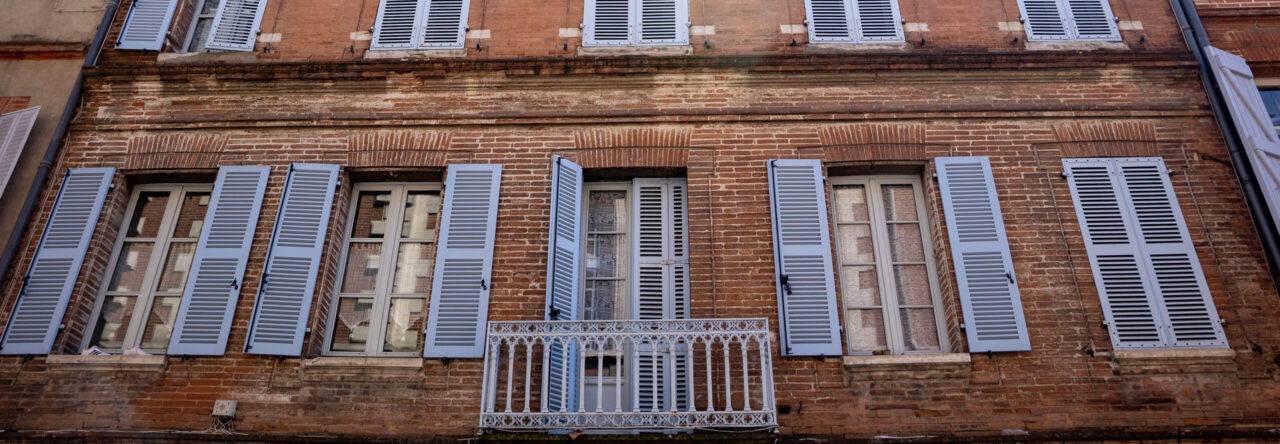During the fall vacation, the Dickinson students and team left Toulouse to spend four days in Paris. Some of them had already visited the capital whereas others were discovering it for the first time. During the train ride, I asked them about their perception of Paris before and after their four-day trip.
Darcy expressed her excitement to visit this famous city for the first time: “All I’m thinking is ‘Paris! I’m going to Paris! Paris! I’m going to Paris!’” After four days, satisfied of with her visit, she still felt the charm of Paris, but she had also discovered how tired the city can make you: “I walked a lot this week, so today my body is tired, my feet are tired, my head is tired, I al tired.”
David noticed a change in his perspective from when he visited Paris in middle school : “I visited Paris when I was young…this time, I’m older, but I’m now a resident of France, not a tourist.” He adds: “I was able to appreciate the city more than last time. With more independence, you can discover the lesser known parts of the city, for example.”
On the way there, Eric pointed out the mysterious qualities of Paris : “I feel like Paris is a beautiful woman, the most beautiful city in the world.” After a few days spent wandering the “city of Enlightenment,” he explained that “my favourite day was when I walked for about eight hours; I think the best way to see Paris is by foot.”
Marie came to Paris with many plans in mind. She wanted to visit a lot of different monuments and museums, but choosing her visits was more difficult: “I’d like to visit small neighborhoods, markets, but honestly I don’t know yet. I think I’ll just decide when the time comes!” In four days, she felt she had a firm grasp on the city and declared: “I was surprised by how comfortable I felt…even though Paris is a huge city, I could find my way around easily.”
Michekke wanted to visit the unknown, to get away from tourist sites: “I’m not going to go to the Eiffel Tower, to the Louvre museum or to other places packed with tourists. I’d find that a waste of time, especially when there are lots of other things I’d like to do.” She really appreciated the cultural diversity of this “wonderful and cosmopolitan city,” where you can “hear more foreign languages than French and run into people from lots of different countries.”
Having already been to Paris, Nina thought that “Parisians aren’t as cold as we make them out to be and the atmosphere is actually less stressful than other large cities in the United States.” During her thrd visit to the city, she found that Paris is “a good city to discover by foot, which allows you to see the personality of the buildings that give Paris its charm” and she also notes that “there are lots of Americans – I heard English everywhere.”
Unlike Nina, Rosy discovered the city for the first time. “The only sources of inforlation I have on the city come from films and (probably) aren’t a good representation of the city,” she said on the train ride there. Having run into Parisians during her four days, she concluded that “they like it better if you speak French because they initially tried speaking English with me once they guessed I was foreign. Once we told them we spoke French, they were luch nicer.” She was enamoured by the city and enthusiastically exclaimed that “It was almost impossible to believe I was actually there.”
Monica, also in Paris for the first time, expected to be “surprised, charmed and intimidated by this wonderful city, Paris.” She took off to discover the city alone, determined to “visit all fo the things that are most important to me even if nobody wants to come with.” The energy of the capital let her appreciare Toulouse better than before: “Paris is a beautiful city, great to visit, but I personally prefer living in the pink city. It’s less expensive, there are less English speakers, and the weather is much nicer!”
Finally, Ashleigh confided that “I’d asked my French friends in Toulouse for suggestions and they gave me a list of things to do.” Like Monica, she added: “I think Paris is great for vacation, but I’m happy I don’t live there.” She avoided tourist locations and dedicated her time to more mundane activities: “I went to a lot of cafés (and drank a lot of hot chocolate!), I went shopping, and I strolled around Paris.”
Click here to view photos from the original post http://blogs.dickinson.edu/toulouse/2012/11/19/quelques-impressions-de-paris/
